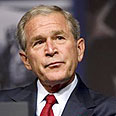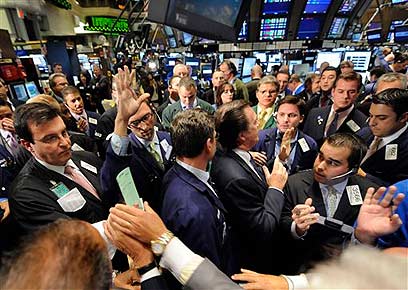
US Senate endorses $700B bailout
House girds for second try on financial rescue after Senate gives it thumbs up; world markets mixed after bailout's approval
The US Senate endorsed a revised $700 billion plan, Thursday, aimed to tackle a financial crisis that has shaken world markets and drawn warnings of approaching economic catastrophe.
The plan now faces a final hurdle in the House of Representatives, which rocked global markets this week by rejecting an earlier version.
President George W. Bush, speaking after Wednesday night's 74-25 Senate vote, called the bailout "essential to the financial security of every American".
The bailout plan, equivalent to some $2,300 per American, is intended to reinvigorate credit markets and inter-bank lending that had frozen up while overleveraged financial institutions staggered under the weight of failed mortgages. It has stirred fierce criticism from those who see it as help for a Wall Street guilty of taking reckless risks in pursuit of short-term profit.

Mix trends. Wall Street (Illustration: AP)
The Treasury aims to take on illiquid assets held by banks, hoping to unfreeze credit markets vital to the wider economy.
Market participants warned that the rescue package is not a cure-all, with a worsening economic outlook spurring calls for central banks to cut interest rates.
"Even if the bill is passed, worries remain over the global economic outlook so financial markets are unlikely to stabilize," said Masamichi Adachi, senior economist at JPMorgan in Tokyo.
"It's a completely different world now. All the things US authorities are doing now are simply aimed at preventing a global meltdown."
Changes in reality
Leaders in the US House of Representatives expressed cautious optimism that the legislation would be approved.
Senate leaders hope that sweetening the plan with a tax cut and extended federal protection for bank deposits can turn "no" voters into supporters. On Monday, the House rejected the previous version of the plan by a 228-205 vote.
"It's still uncertain. I think it is likelier to pass than before," House Financial Services Committee Chairman Barney Frank said in an interview on CNN. "The main change is reality. I think that it's not possible now to scoff at the predictions of doom if we don't do anything," the Massachusetts Democrat added.
Treasury Secretary Henry Paulson, urged the House to act swiftly to ratify it. Should the House uphold the bill, it would go to the White House for signature into law by President Bush.
The US Senate's approval of a revised crisis bailout bill helped boost European stocks and lift the dollar on Thursday, but economic worries weighed on Asia and concern about final passage of the proposal lingered.
Wall Street also looked set to open lower.
Interest rates were in focus with the European Central Bank meeting later in the day and markets pricing in a US Federal Reserve rate cut later this month. The ECB is expected to keep rates on hold at 4.25%, but its views on the global financial crisis, now firmly spreading to Europe, will be closely scrutinized by the market.
The Markets were quick to react as the Britain's FTSE was up 1.1%, Germany's DAX gained 1%, Japan's Nikkei fell 1.9%, Hon Kong's Hang Seng rose 1.1% and benchmarks in Australia, South Korea and Taiwan also dropped.










